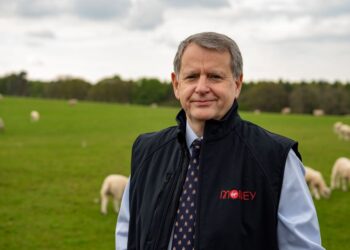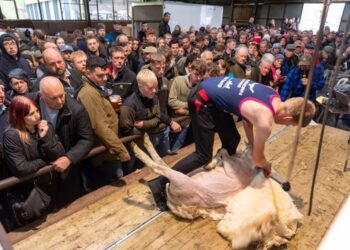
Bird flu has been found in West Cumbria, the Government has confirmed.
Avian influenza has been detected at a premises near Silecroft in Copeland.
It means 3km and 10km Temporary Control Zones are now in place.
The occupier of any premises in the zone where poultry and other captive birds are kept must:
- Record the details of people visiting the premises, the date of the visit and if they had any contact with the birds.
- Record the details of all poultry entering or leaving the premises
- Any person who is engaged in the transport or marketing of poultry or poultry eggs in the zone must, as soon as is reasonably practicable, make a record of all poultry and poultry eggs transported or marketed
The occupier of premises in the zone where poultry or other captive birds are kept must ensure that they are:
- housed; or
- kept isolated (if so directed by a veterinary inspector on the basis that housing is impractical or would adversely affect the birds’ welfare to a significant degree).
Measures where birds not housed
If birds are kept isolated but not housed, the occupier must
- ensure that they have no contact with poultry or other captive birds on other premises; and
- take all reasonable steps to minimise their contact with wild birds, in accordance with a veterinary inspector’s instructions
UK health agencies advise that the risk to public health from the virus is very low and the UK food standards agencies advise that avian influenzas pose a very low food safety risk for UK consumers.
Properly cooked poultry and poultry products, including eggs, are safe to eat.
The protection and surveillance zones will apply from 19 November until the zone is withdrawn or amended by DEFRA.
Temporary road signs will be put in place along the zone boundaries for awareness.
The response is being led locally by Cumbria County Council, Copeland Borough Council, the Department for Environment, Food and Rural Affairs (DEFRA), the Animal and Plant Health Agency and the UKHSA (UK Health Security Agency).
People in direct contact with the premises have been contacted and offered appropriate preventative treatment.
Avian Influenza is primarily a disease of birds and the risk to the general public’s health is very low. However, anyone who is concerned should call NHS 111 or speak to their GP.
Public Health advice for residents
- The risk to public health from avian flu is very low.
- However, it is important that people do not pick up any sick or dead birds to avoid spreading the virus, which can affect humans in rare cases.
- If you do find any dead swans, geese or ducks or other dead wild birds while out and about, please report them to the Defra helpline on 03459 33 55 77.
- Bird keepers need to be vigilant for any signs of disease and report any suspected cases to their nearest Animal and Plant Health Agency office.
- Avian Influenza is primarily a disease of birds and the risk to the general public’s health is very low. However, anyone who is concerned should call NHS 111 or speak to their GP.
The Avian Influenza Prevention Zone means bird keepers across the country must:
- Keep domestic ducks and geese separate from other poultry;
- Ensure the areas where birds are kept are unattractive to wild birds, for example by netting ponds, and by removing wild bird food sources;
- Feed and water their birds in enclosed areas to discourage wild birds;
- Minimise movement into and out of bird enclosures;
- Cleanse and disinfect footwear and keep areas where birds live clean and tidy;
- Reduce any existing contamination by cleansing and disinfecting concrete areas, and fencing off wet or boggy areas;
- Keep free ranging birds within fenced areas, and ponds, watercourses and permanent standing water must be fenced off (except in specific circumstances, eg zoo birds).
- The prevention zone will be in place until further notice and will be kept under regular review as part of the government’s work to monitor and manage the risks of bird flu.
Poultry keepers and members of the public should report dead wild birds to Defra’s national dead wild bird helpline on 03459 33 55 77 and keepers should report suspicion of disease to APHA on 03000 200 301.
Keepers should familiarise themselves with our avian flu advice.































